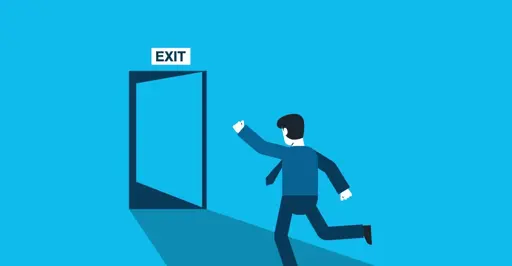Highlights
So the point of the American UI system is not to make it easier to quit a job. But a few economists are now beginning to ask: Should it be?
A safety net program that would encourage more Americans to quit their jobs has generally been seen as a bad thing.
Boosting UI generosity doesn’t affect overall employment rates one way or the other. Instead of loafing around in subsidized unemployment, more generous benefits can support people to quit their jobs in search of better ones, which benefits workers through higher wages and better job satisfaction, and the economy through enhanced productivity as people find better uses for their skills.
The real losers would be lousy jobs, which would struggle to retain workers with a greater cushion to quit and go looking elsewhere.
A major barrier facing lasting reform has been that most people do not care about improving the unemployment system long enough to build the kind of political momentum that gets laws through Congress.
Without financial support, quitting in search of better work just isn’t always a viable option, especially for the more than one in 10 US households that have zero wealth to fall back on.
The unemployment insurance system was established during the Great Depression as part of the Social Security Act in 1935, when the unemployment rate was about 20 percent; helping those workers who still had jobs quit wasn’t exactly a policy priority. About half of American workers were excluded from coverage, including agricultural and domestic workers (many of whom were Black).
The surge of quits during the pandemic and the expansion of unemployment insurance created a unique dataset that caught the attention of economists Zhifeng Cai and Jonathan Heathcote.
After an extra $600 was added to weekly UI checks, along with a major expansion to who is eligible for the benefits, studies found no connection between the boosted UI and laziness or joblessness (echoing findings around unconditional cash transfers more broadly, where giving people cash doesn’t undermine their desire to work).
Economists have historically held equality and efficiency at odds with each other, with higher UI benefits seen as an equality booster that trades off against economic efficiency. But Cai explained in an interview with Vox that “if you give nothing to people who quit, it’s actually not an efficient choice, because there are too few people quitting. Our point is that even from an efficiency perspective, you still want to have some UI going to quitters.”
The government should serve the people. The economy should be a tool to prop up people. Corporations are not people and don’t vote. If the government should choose between benefitting the economy, the corporations or the people the obvious choice should be the people.
Instead the government is a servant of corporations and economy is the tool to extract value from people and funnel it into corporations.
The real losers would be lousy jobs, which would struggle to retain workers with a greater cushion to quit and go looking elsewhere.
Morpheus 😎: What if I told you, most US jobs are “lousy”?
That the majority of jobs are either make-work bullshit, nepotistic seat warmers, or grueling underpaid nightmares? What if the cruelty of keeping you stuck in a shitty job is the point?
Yes, but regardless, don’t let the perfect be the enemy of the good - support incremental improvement while maintaining awareness of the larger goal




